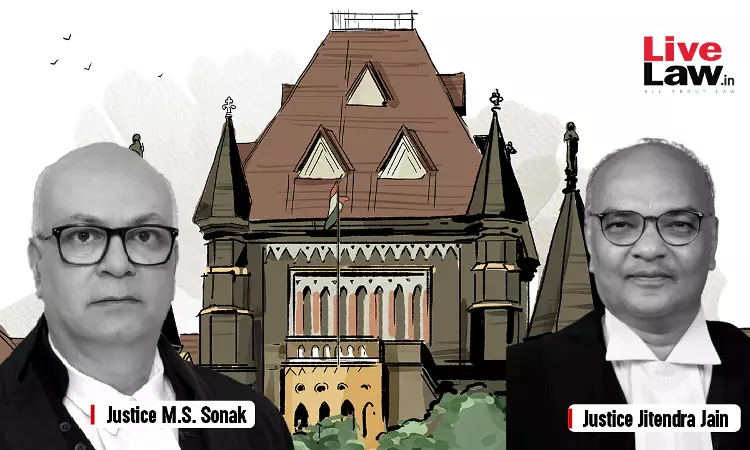- Home
- /
- High Courts
- /
- Bombay High Court
- /
- Treaty Provisions Don't Override...
Treaty Provisions Don't Override Customs Law: Bombay High Court Upholds SCN Issued For Alleged Misuse Of Import Exemptions
Mehak Dhiman
17 Jun 2025 10:10 AM IST
The Bombay High Court stated that treaty provisions don't override customs law and upheld the show cause notices issued for alleged misuse of import exemptions. The Bench consists of Justices M.S. Sonak and Jitendra Jain observed that based on a treaty provision that is not transformed or incorporated into the national law or statute, the provisions of the existing Customs Act...
The Bombay High Court stated that treaty provisions don't override customs law and upheld the show cause notices issued for alleged misuse of import exemptions.
The Bench consists of Justices M.S. Sonak and Jitendra Jain observed that based on a treaty provision that is not transformed or incorporated into the national law or statute, the provisions of the existing Customs Act cannot be undermined, or the powers and jurisdiction of the customs authorities questioned.
In this case, the Government of India signed an agreement on Trade in Goods under the Framework Agreement on Comprehensive Economic Cooperation between the Republic of India and the Association of Southeast Asian Nations in 2009 [AIFTA]. Malaysia is a member of the Association of Southeast Asian Nations (ASEAN).
The assessee/petitioners had imported Tin Ingots manufactured by Malaysian Smelting Corporation (MSC) under its brand name, from various traders located in Singapore or Europe.
The Petitioners have pleaded that these imported Ingots were accompanied by a valid Certificate of Origin (COO) issued by the Ministry of International Trade and Industry, Malaysia (MITI).
Based on such certification, the Petitioners have claimed and availed themselves of the benefits under Customs Exemption Notification No. 46 of 2011, dated June 1, 2011, from time to time.
Several domestic industries filed complaints regarding the import of Tin Ingots from Malaysia, alleging that they had been wrongly availing themselves of the benefits under Exemption Notification No. 46 of 2011.
The DRI initiated the process of “Retroactive Check” and noted that there was no cooperation from the Malaysian authorities. Accordingly, the Customs Authorities issued the show cause notices under Section 28 of the Customs Act.
Accordingly, the assessee contended that the initiation of any adjudication proceedings under the Customs Act without observing the due process of law and as prescribed in the treaty, which would include the specific dispute resolution mechanism provided under Article 24, is wholly without jurisdiction and unsustainable.
The department submitted that the provisions of an international treaty, unless incorporated into or transformed into Municipal laws or the State laws, cannot be directly enforced in the Court. It was submitted that, therefore, to give effect to some of the provisions of AIFTA, the Customs Tariff (DOGPTA) Rules 2009 were enacted. However, there was no reference to Article 24 in the document.
The bench observed that based on the material collected by the Customs authorities, a show cause notice has been issued to the Petitioners giving them full opportunity to explain how there was misrepresentation, suppression or fraud on the issue of RCV. There is no legal or jurisdictional infirmity in the issue of such show cause notices. The provisions of Article 24 of AIFTA do not deprive the customs authorities of their powers or jurisdiction to issue such show cause notices.
The Petitioners virtually insist that the treaty provisions prevail over national laws, even though the treaty provisions on which they rely have not been incorporated into any national law. This is clearly impermissible, and the challenge on the lack of jurisdiction to issue the show cause notices cannot be sustained, added the bench.
The bench opined that “based on the provisions of Section 28DA, we cannot infer that the pre-amended provisions of the Customs Act, 1962, prevented the Customs Authorities from exercising powers under Section 28 of the Customs Act and investigating cases of misrepresentation, suppression, or fraud. Certain additional powers have now been conferred upon the Customs authorities. But an inference that the earlier powers were insufficient to deal with cases of fraud, suppression or misrepresentation is untenable.”
In view of the above, the bench dismissed the petition.
Case Title: Purple Products Private Limited v. Union of India
Case Number: WRIT PETITION NO. 2831 OF 2018
Counsel for Petitioner/ Assessee: Vikram Nankani
Counsel for Respondent/ Department: Jitendra B Mishra



